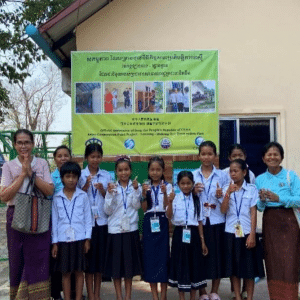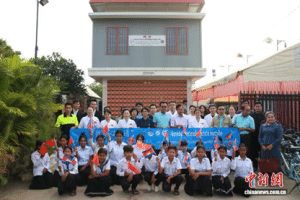On the 40th anniversary of China’s reform and opening, He Daofeng, a retired philanthropist, was interviewed by China Foundation Forum (CFF). He shared his life experiences and said that he would be willing to help provide advice to the next generation.
Part 1 – The enthusiasm of a young man
“When I was admitted to the Economics Department of Fudan University, there were less than 7,000 graduate students in China,” said He Daofeng, reflecting on life in 1981.
He started his graduate studies wanting to ask Karl Marx two questions:
- If human nature is too selfish and greedy to get rid of the exploitation surplus, can public ownership improve human nature?
- If so, how?
“I tried to find answers, not only from Das Kapital but also from The Selfish Gene by Richard Dawkins, the Economics of Shortage by János Kornai, and The Road to Serfdom by Friedrich von Hayek.”
In 1983, one of He’s rural survey reports published in a university magazine was seen by the central government. The leader of the Rural Policy Research Office of CPC Central Committee (CRPRO) came directly to the university and asked He to come and work for the national think tank.
With little bureaucracy, the CRPRO office had a very free and open atmosphere. He spent more than five years there and looks back on the experience with fondness: “Even today, I am still grateful I had the chance to do that.”
Part 2 – Business and charity
“Many people think that economics graduates are naturally good at making money, but me, I need to forget all the empty theories,” said He, who went into the private sector after his time at CRPRO.
After a successful career in business, he reached another turning point in his life in 1997. An old friend from the government wanted He’s company to participate in a national poverty alleviation program financed by the World Bank.
However, there was an ethical and legal risk. Could a private company participate in a government project involving 61 poverty-stricken counties in six provinces?
After days of brainstorming, He proposed his solution: establish an NGO, the Human Resource Development Center in Western China (the Center).
The idea was innovative and the Center became a big success, with the model later copied by many similar projects.
In 1999, He was invited to join the China Foundation for Poverty Alleviation (CFPA) to promote market-oriented reform: “They expected me to copy the successful model from the Center.”
It was not easy to persuade the government-run organization to give up state support, but He persevered and turned the CFPA into one of the largest NGOs in China over the following two decades.
“Despite many objections, I stood firm,” He recalled, “thanks to my lingering nostalgia for the CRPRO.” The reform is clearly one of the proudest achievements of his life.
Part 3 – Expectations for young people
While outlining his expectations for China’s young philanthropists, He gave four pieces of advice:
- Find the right organization. If you find yourself at odds with an organization’s values, leave as early as possible;
- Think independently. Everybody has their own unique values, which requires us to think independently to explore them;
- Learn vital work skills, such as coordination;
- Always act in a polite and peaceful manner.
“At the age of 43, I accepted the challenge of CFPA. Those of you around the age of 40 should also be fearless!”
(Photo: China Foundation Forum)



